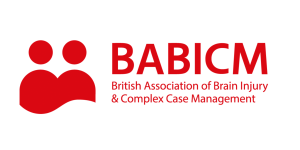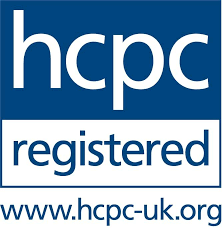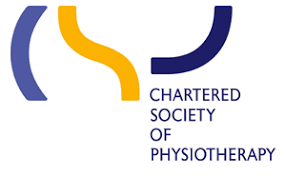Case Management
What is Case Management?
Neurological, Orthopaedic and respiratory case management is a highly specialised service designed to support individuals recovering from traumatic or acquired brain injuries (TBI/ABI) , spinal cord injuries (SCI) Amputation poly trauma , and complex respiratory conditions, including those requiring tracheostomy care or mechanical ventilation. This service facilitates a structured and coordinated rehabilitation pathway, ensuring that every aspect of the client’s medical, therapeutic, psychological, and social needs is addressed.
Acting as a central coordinator, the case manager collaborates closely with a multidisciplinary team of healthcare professionals—including Consultants, neuropsychologists, physiotherapists, occupational therapists, speech and language therapists, respiratory specialists, and social workers—alongside the client and their family. Together, they formulate and implement a bespoke rehabilitation and care plan, tailored to the client’s specific clinical presentation, functional goals, and psychosocial context.
This integrated and person-centred approach enhances continuity of care, supports navigation through complex healthcare, social care, and legal frameworks, and drives optimal outcomes across the physical, cognitive, emotional, and behavioural domains of recovery.
For legal representatives, insurers, and healthcare commissioners, neurological, orthopeadicand respiratory case management provides invaluable clinical insight, coordinated service delivery, and clear documentation—contributing to timely decision-making, improved efficiency, and enhanced client satisfaction.Our team understand the importance of working in partnership with the instructing parties.
Our highly experienced case managers provide proactive, client-centred support to individuals and their families managing the multifaceted effects of complex neurological and respiratory conditions. Each of our case managers is a registered healthcare professional, possessing a minimum of 20 years of post-qualification clinical experience. Many hold Master’s degrees or other postgraduate certifications in fields such as neurorehabilitation, respiratory care, or advanced clinical practice.
We specialise in supporting individuals with traumatic and acquired brain injuries (TBI/ABI), spinal cord injuries (SCI), tracheostomy and ventilator dependency, orthopaedic trauma, limb loss (amputation) and other neurological conditions. Our team brings a wealth of interdisciplinary knowledge to the rehabilitation process, integrating clinical expertise with compassionate, goal-directed support.
Our primary aim is to optimise each client’s functional recovery, promote neuroplasticity where applicable, and enhance activities of daily living (ADLs) to foster independence, community reintegration, and overall quality of life.
The process begins with a comprehensive case management assessment (Initial Needs Assessment), which includes clinical evaluation, psychosocial assessment, and identification of immediate and long-term rehabilitation needs. Based on this, a holistic and personalised rehabilitation plan is developed.
Our case managers coordinate and monitor the delivery of multidisciplinary services including:
- Nursing care and personal support
- Physiotherapy, occupational therapy, and speech & language therapy
- Specialist respiratory support and equipment
- Environmental modifications and assistive technology
- Educational and vocational planning
- Psychological therapy and neuropsychological support
- Community access, social integration, and leisure activities
Through collaborative planning and continuous review, we empower our clients to achieve meaningful progress and live fulfilling, self-directed lives.
Initial Needs Assessment
- What is an Initial Needs Assessment?
An Initial Needs Assessment is a comprehensive, person-centred evaluation carried out by a case manager to identify the medical, psychological, social, and rehabilitation needs of an individual following a serious injury or complex health condition. It forms the foundation for planning appropriate interventions and support services.
- Who conducts the Initial Needs Assessment?
All assessments are conducted by experienced, registered healthcare professionals (e.g., nurses, occupational therapists, physiotherapists) who are trained and qualified as case managers, with expertise in managing complex neurological, spinal, and respiratory conditions.
- When is the Initial Needs Assessment carried out?
The assessment is typically completed soon after referral, depending on the client’s medical stability and availability. Early assessment enables the case manager to quickly identify priorities and begin coordinating care.
- What does the Initial Needs Assessment involve?
The assessment usually includes:
- A clinical review of the client’s diagnosis, treatment history, and current condition
- Evaluation of physical, cognitive, psychological, and behavioural functioning
- Risk assessment and safeguarding considerations
- Review of current care arrangements and support systems
- Assessment of environmental needs (e.g., housing, accessibility, equipment)
- Identification of goals and rehabilitation potential
- Input from the client, family, and existing professionals where appropriate
- How long does the assessment take?
This can vary depending on the complexity of the individual’s needs, but typically takes 1–3 hours for the interview, with further time allocated for report writing and care planning.
- Where does the assessment take place?
Assessments can be conducted in a range of settings, including:
- The client’s home
- Hospital or rehabilitation unit
- Residential care setting
- Remotely via secure video conferencing (when appropriate)
- What is the outcome of the assessment?
Following the assessment, the case manager will produce a detailed Initial Needs Assessment Report. This outlines:
- Key findings
- Identified risks and needs
- Recommendations for interventions, services, and support
- A proposed Rehabilitation or Case Management Plan, including goals and timescales
This document can be shared with legal teams, insurers, and healthcare providers (with consent).
- Is the assessment suitable for medico-legal purposes?
Yes. Our assessments are frequently used in litigation, insurance, and medico-legal contexts. The report is professionally structured, evidence-based, and clearly outlines recommendations for funding and service provision.
- Who pays for the Initial Needs Assessment?
- Personal injury or clinical negligence insurers
- Case management funding from solicitors
- NHS Continuing Healthcare or social services
- Private payment (self-funding)
Our team can liaise directly with the appropriate funder to arrange payment.
- What happens after the Initial Needs Assessment?
Once the report is completed and agreed upon, the client can choose to proceed with ongoing case management services. This includes coordinating care teams, arranging therapy, sourcing equipment, and supporting reintegration into the community, education, or work.
- Is consent required for the assessment?
Yes. Informed consent is always obtained from the client (or a legal representative, if applicable) before any assessment takes place. Confidentiality and data protection are strictly maintained in accordance with GDPR and professional guidelines.
- How can I request an Initial Needs Assessment?
You can contact our team directly via 024 7722 0605, info@greatlifecare.co.uk We aim to respond within 1 business day and arrange an appointment as soon as possible.




